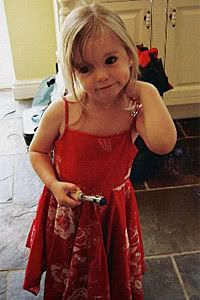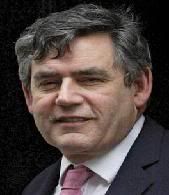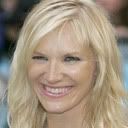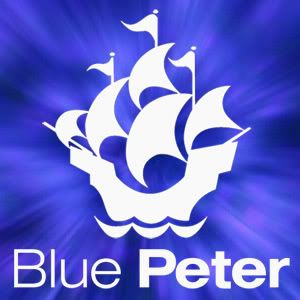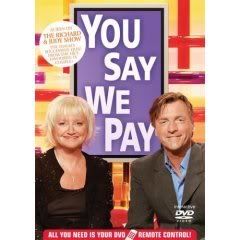Checkpoint 1: What is the difference between the Proletariat and Bourgeoisie?
The proletariat are the working class, who sell their labour and are not well off and are usually exploited by the other class group. The bourgeoisie are upper class and hire the proletariat, they fall into two groups. The wealthy bourgeoisie who do not work and the petty bourgeoisie who do employ others as well work themselves too.
Checkpoint 2: what is the difference between the ISAs and the RSAs?
Repressive State Apparatuses (RSA) feed their ideologies through authoritive figures such as the military,police etc. Whereas Ideological State Apparatus (ISA) feed their ideologies subconsciencly through religion, education, family values, legal and political system etc.
Tuesday 30 October 2007
Tuesday 16 October 2007
A: I dont understand why everyone is concerned with cultural homogenisation. What exactly is it?
B: well, cultural homogenisation is to receive the values and ideologies of the media, for example the monopoly run by Rupert Murdoch, he owns so much of the media, newspapers and channels, and is highly influential to the extent that when Tony Blair became PM the first person he went to see was him, just to get his support and backing due to his ability to enforce his ideas through his newspapers. With one man running so much of the media from the Sun to Sky, it leaves the audience without an alternative choice, and leads them to believe the ideologies and values he supports.
A: audiences arent passive any longer though. There are so many different sources of information, even if Murdoch owns alot. Theres the internet, BBC News, other newspapers, other news channels etc. Theres enough resources for them to make their own choice rather than believe whatever Murdoch thinks.
B: But some people rely on his newspapers and his channels. Your not going to change what you read or watch just for a unbiased version of the news are you? Many people dont have the time to look at other sources. Thats why cultural homogenisation is dangerous as the audiences accept the beliefs due to reputation these monopolies have built. The audience is slowly turning into an example of the hypodermic needle model and changes a pluralistic society.
A: ok fine hes viewpoint may be obvious but its not neccessarily a bad thing for someones ideologies to be visible if it doesnt cause any real harm, hes just helping people make up their mind.
B: its harmful as it challenges the pluralistic society, the audience is no longer given a neutral viewpoint and can be influenced by negative media such as this. Look at the cultural imperialisation of the US media, US culture is dominate and influential for us, and look as Bush's terrorism campaign, its just a form of propaganda and from this propaganda everyone across the world is in a state of worry, its a perfect example of the global village.
The likes of Murdoch may be successful in what they do but we have to keep in mind that we need a pluralistic society which gives us a range of opinions and sum sources of unbiased news so that audiences do not take on the monopoly owners ideologies and values and are left to make their own decisions.
B: well, cultural homogenisation is to receive the values and ideologies of the media, for example the monopoly run by Rupert Murdoch, he owns so much of the media, newspapers and channels, and is highly influential to the extent that when Tony Blair became PM the first person he went to see was him, just to get his support and backing due to his ability to enforce his ideas through his newspapers. With one man running so much of the media from the Sun to Sky, it leaves the audience without an alternative choice, and leads them to believe the ideologies and values he supports.
A: audiences arent passive any longer though. There are so many different sources of information, even if Murdoch owns alot. Theres the internet, BBC News, other newspapers, other news channels etc. Theres enough resources for them to make their own choice rather than believe whatever Murdoch thinks.
B: But some people rely on his newspapers and his channels. Your not going to change what you read or watch just for a unbiased version of the news are you? Many people dont have the time to look at other sources. Thats why cultural homogenisation is dangerous as the audiences accept the beliefs due to reputation these monopolies have built. The audience is slowly turning into an example of the hypodermic needle model and changes a pluralistic society.
A: ok fine hes viewpoint may be obvious but its not neccessarily a bad thing for someones ideologies to be visible if it doesnt cause any real harm, hes just helping people make up their mind.
B: its harmful as it challenges the pluralistic society, the audience is no longer given a neutral viewpoint and can be influenced by negative media such as this. Look at the cultural imperialisation of the US media, US culture is dominate and influential for us, and look as Bush's terrorism campaign, its just a form of propaganda and from this propaganda everyone across the world is in a state of worry, its a perfect example of the global village.
The likes of Murdoch may be successful in what they do but we have to keep in mind that we need a pluralistic society which gives us a range of opinions and sum sources of unbiased news so that audiences do not take on the monopoly owners ideologies and values and are left to make their own decisions.
Fury at Bremner's McCann sketchLeigh HolmwoodTuesday October 16, 2007

Dozens of viewers have complained about a sketch on Channel 4's Bremner, Bird and Fortune on Sunday that suggested that Gordon Brown would find Madeleine McCann on the eve of an election.
Media regulator Ofcom said it had received 32 complaints, while Channel 4 also confirmed it had received "a number" of complaints, although it would not release a figure.
Viewers complained over what they saw as insensitivity while the search for Madeleine - who was taken from her Portuguese hotel room in May - continues.
The sketch, which was performed on Rory Bremner's Channel 4 satirical comedy show on Sunday night, suggested that Mr Brown was so desperate for an election win that he would produce Madeleine on the eve of a poll in order to secure votes.
Sunday's episode, which aired at 7pm, was watched by 1.3 million viewers - a 6% share of the audience.
One viewer who complained, David Cairnie, said he found the sketch "despicable".
"I wish to register my abhorrence at a supposed 'joke' proffered by Bremner, Bird and Fortune," he added.
"They suggested that Gordon Brown might produce and hold up Madeleine McCann on the eve of an election as a vote-winning move. It seems that Channel 4 has reached a new level in despicable taste."
A Channel 4 spokesman defended the sketch, saying it was not aimed at the McCanns but at politicians.
"The sketch satirised the lengths to which politicians would go to win public support, following press criticism of the timing of Gordon Brown's visit to Iraq in the run up to a snap general election," the spokesman added.
"We can assure you the sketch was not aimed at the McCann family, but was clearly directed at politicians and their opportunistic publicity stunts. It was certainly never Channel 4's intention to offend or cause distress to the family or to our viewers."

Dozens of viewers have complained about a sketch on Channel 4's Bremner, Bird and Fortune on Sunday that suggested that Gordon Brown would find Madeleine McCann on the eve of an election.
Media regulator Ofcom said it had received 32 complaints, while Channel 4 also confirmed it had received "a number" of complaints, although it would not release a figure.
Viewers complained over what they saw as insensitivity while the search for Madeleine - who was taken from her Portuguese hotel room in May - continues.
The sketch, which was performed on Rory Bremner's Channel 4 satirical comedy show on Sunday night, suggested that Mr Brown was so desperate for an election win that he would produce Madeleine on the eve of a poll in order to secure votes.
Sunday's episode, which aired at 7pm, was watched by 1.3 million viewers - a 6% share of the audience.
One viewer who complained, David Cairnie, said he found the sketch "despicable".
"I wish to register my abhorrence at a supposed 'joke' proffered by Bremner, Bird and Fortune," he added.
"They suggested that Gordon Brown might produce and hold up Madeleine McCann on the eve of an election as a vote-winning move. It seems that Channel 4 has reached a new level in despicable taste."
A Channel 4 spokesman defended the sketch, saying it was not aimed at the McCanns but at politicians.
"The sketch satirised the lengths to which politicians would go to win public support, following press criticism of the timing of Gordon Brown's visit to Iraq in the run up to a snap general election," the spokesman added.
"We can assure you the sketch was not aimed at the McCann family, but was clearly directed at politicians and their opportunistic publicity stunts. It was certainly never Channel 4's intention to offend or cause distress to the family or to our viewers."
Tuesday 9 October 2007
TIME WARNER
Time Warner Inc. is the world's largest media and entertainment conglomerate headquartered in New York City, with major operations in film, television, publishing, Internet service and telecommunications. Among its subsidiaries are AOL, Home Box Office, New Line Cinema, Time Inc., Time Warner Cable, Turner Broadcasting System, The CW and Warner Bros. Entertainment.
*Conglomerates: a conglomerate is a collection of companies owned by a single institution. These need not all be within the same industry. This diversification allows protection against a single part of the conglomerate failing.
Origins
Warner Communications was established in 1972 when Kinney National Company spun off its non-entertainment assets, due to a financial scandal over its parking operations.
It was the parent company for Warner Bros. Pictures and Warner Music Group during the 1970s and 1980s. It also owned DC Comics and Mad, as well as a majority stake in Garden State National Bank (an investment it was ultimately required to sell pursuant to requirements under the Bank Holding Company Act). Warner's initial divestiture efforts led by Garden State CEO Charles A. Agemian were blocked by Garden State board member William A. Conway in 1978; a revised transaction was later completed in 1980. Warner made considerable profits (and later losses) with Atari, which it owned from 1976 to 1984. In 1976, Nolan Bushnell sold his Atari company to Warner Communications for an estimated $28 - $32 million. While part of Warner, Atari achieved its greatest success, selling millions of Atari 2600s and computers. At its peak, Atari accounted for a third of Warner's annual income and was the fastest-growing company in the history of the United States at the time.
In the 1970s, Warner expanded under the guidance of CEO Steve Ross and formed a joint venture with American Express, named Warner-Amex Satellite Entertainment, which held cable channels including MTV, Nickelodeon and Showtime. Warner bought out American Express's half in 1984, and sold the venture a year later to Viacom, which renamed it MTV Networks.
In February 1983, Warner expanded their interests to baseball. Under the direction of Ceasar P. Kimmel, executive vice president, bought 48 percent of the Pittsburgh Pirates for $10 million. It then put up its share for sale in November 1984 following losses of $6 million. The team's elderly majority owner, John W. Galbreath, soon followed suit after learning of Warner's actions.
Turner Broadcasting logo
1999 Time Warner logo
In 1984, due to the video game crash of 1983, Warner sold the consumer division of Atari to Jack Tramiel. It kept the arcade division and renamed it Atari Games. They sold Atari Games to Namco in 1985, and repurchased it in 1994, renaming it Time-Warner Interactive, until it was sold to Midway Games in 1996. Meanwhile, In 1987, it was announced that Warner Communications and Time Inc. were to merge. The last thing Warner did before the merger closed in 1989 was to buy out Lorimar-Telepictures. In early 1990, the combined companies were named Time Warner. This company subsequently acquired Ted Turner's Turner Broadcasting System in October 1996.
Time Warner had also been owner of the Six Flags Theme Parks chain during the 1990s after near bankruptcy. It sold all Six Flags parks and properties to Oklahoma based Premier Parks on April 1st, 1998. Some theme park insiders argue that Six Flags was much better off under Time Warner ownership.
America Online merger
In 2000, a new company called AOL Time Warner was created when AOL purchased Time Warner for US$164bn. The deal, announced on 10 January 2000 and officially filed on 11 February 2000, employed a merger structure in which each original company merged into a newly created entity. The Federal Trade Commission cleared the deal on December 14, 2000, and gave final approval on January 11, 2001; the company completed the merger later that day. The deal was approved on the same day by the Federal Communications Commission, and had already been cleared the European Commission on 11 October 2000. The shareholders of AOL owned 55% of the new company while Time Warner shareholders owned only 45%, meaning that the smaller AOL had in fact bought out the far larger Time Warner.
There has been some speculation about the motivations of each party. Some observers believed that Time Warner was struggling to integrate "new media" into its business. At the time of the announcement, Time Warner executives spoke of the need to "digitize their business." They were also eager to be attached to a dot-com company, as the dot-com bubble was near its peak. A merger with AOL provided a huge subscriber base of Internet users, along with online marketing know-how. While some business journalists have reported that AOL executives felt that AOL stock was severely overvalued and that a big merger was the only way to avoid a collapse in valuation, it this could merely have been a small part of AOL executives' desire to diversify the assets of the company beyond the Internet and online sectors. In addition, executives at AOL were quite concerned about the prospect of increased competition with Microsoft and sought to enlarge the company as a defensive measure. Finally, AOL executives believed that the integration of AOL's Internet distribution and Time Warner's content would create a tremendous amount of value for both sides of the company.
Media companies felt that the vertically integrated AOL Time Warner would unfairly promote its own content within its outlets. This fear existed before the merger, but Time Warner was thought to be a conglomeration of very independent divisions. It was feared that this would change with the influence of AOL executives.
Consumer advocates were concerned with the threat of product tying between Time Warner's cable TV systems and AOL's Internet service. Some consumer groups saw a possible attempt to corner the Internet-over-TV market, whereby AOL could force all of the Time Warner cable subscribers to use AOL branded Internet-TV. Smaller internet service providers feared that AOL would tie its Internet service to Time Warner's cable modem service. Some ISPs wanted the opportunity to use Time Warner's cable network as a common carrier for their services, which competed with AOL. AOL and Time Warner pledged not to violate any antitrust regulations.
Many observers were shocked that a large, diversified media conglomerate was being acquired by a much smaller company. Market conditions at the time of the merger placed a greater premium on Internet-related stocks than on traditional media stocks. AOL's high market capitalization relative to that of Time Warner made the acquisition possible. The deal has since become a symbol of the Dot com bubble and is widely regarded as a disaster for shareholders of the original Time Warner, with a $2.4 billion shareholder settlement, a further $600 million set aside and a $5 billion price boosting share buyback program announced on August 3, 2005.
AOL CEO Steve Case became executive chairman of the new company, while Time Warner CEO Gerald Levin retained the CEO title.
Financials
In 2004, Time Warner's market capitalization was $84 billion. When the AOL-Time Warner merger was announced in January 2000, the combined market capitalization was $280 billion.
For fiscal year 2002 the company reported a $99 billion loss on its income statement because of $100 billion in non-recurring charges, almost all from a writedown of the goodwill (intangible asset) from the merger in 2000. (The value of the AOL portion of the company had dropped sharply with the collapse of the Internet boom, in the early 2000s.)
Competition
Time Warner faces industry competition from traditional media companies such as CBS Corporation, News Corporation, and Viacom, as well as online search portals such as Yahoo!, and Google for competition of viewer attention which translates to ad sales. According to the recent 10Q, in order to remain competitive, Time Warner and AOL must keep pace with rapid technological changes on the internet. Time Warner's business may be severely impacted by the increasing 'piracy' of feature films, television programming and other content which decreases company revenues.
AOL's subscriber base is declining, and declines are expected to continue, adversely affecting subscription and advertising revenue. As more individuals are using non-PC devices to access the Internet, AOL is under pressure to secure placement of its services and applications on mobile devices.
Box office receipts and the growth rate of DVD sales have recently been declining, which adversely affects Warner Brothers' growth prospects and revenues.
Controversy
Time Warner has been criticized for its funding associated with Planned Parenthood, listed as a boycott target by Life Decisions International.
*Conglomerates: a conglomerate is a collection of companies owned by a single institution. These need not all be within the same industry. This diversification allows protection against a single part of the conglomerate failing.
Origins
Warner Communications was established in 1972 when Kinney National Company spun off its non-entertainment assets, due to a financial scandal over its parking operations.
It was the parent company for Warner Bros. Pictures and Warner Music Group during the 1970s and 1980s. It also owned DC Comics and Mad, as well as a majority stake in Garden State National Bank (an investment it was ultimately required to sell pursuant to requirements under the Bank Holding Company Act). Warner's initial divestiture efforts led by Garden State CEO Charles A. Agemian were blocked by Garden State board member William A. Conway in 1978; a revised transaction was later completed in 1980. Warner made considerable profits (and later losses) with Atari, which it owned from 1976 to 1984. In 1976, Nolan Bushnell sold his Atari company to Warner Communications for an estimated $28 - $32 million. While part of Warner, Atari achieved its greatest success, selling millions of Atari 2600s and computers. At its peak, Atari accounted for a third of Warner's annual income and was the fastest-growing company in the history of the United States at the time.
In the 1970s, Warner expanded under the guidance of CEO Steve Ross and formed a joint venture with American Express, named Warner-Amex Satellite Entertainment, which held cable channels including MTV, Nickelodeon and Showtime. Warner bought out American Express's half in 1984, and sold the venture a year later to Viacom, which renamed it MTV Networks.
In February 1983, Warner expanded their interests to baseball. Under the direction of Ceasar P. Kimmel, executive vice president, bought 48 percent of the Pittsburgh Pirates for $10 million. It then put up its share for sale in November 1984 following losses of $6 million. The team's elderly majority owner, John W. Galbreath, soon followed suit after learning of Warner's actions.
Turner Broadcasting logo
1999 Time Warner logo
In 1984, due to the video game crash of 1983, Warner sold the consumer division of Atari to Jack Tramiel. It kept the arcade division and renamed it Atari Games. They sold Atari Games to Namco in 1985, and repurchased it in 1994, renaming it Time-Warner Interactive, until it was sold to Midway Games in 1996. Meanwhile, In 1987, it was announced that Warner Communications and Time Inc. were to merge. The last thing Warner did before the merger closed in 1989 was to buy out Lorimar-Telepictures. In early 1990, the combined companies were named Time Warner. This company subsequently acquired Ted Turner's Turner Broadcasting System in October 1996.
Time Warner had also been owner of the Six Flags Theme Parks chain during the 1990s after near bankruptcy. It sold all Six Flags parks and properties to Oklahoma based Premier Parks on April 1st, 1998. Some theme park insiders argue that Six Flags was much better off under Time Warner ownership.
America Online merger
In 2000, a new company called AOL Time Warner was created when AOL purchased Time Warner for US$164bn. The deal, announced on 10 January 2000 and officially filed on 11 February 2000, employed a merger structure in which each original company merged into a newly created entity. The Federal Trade Commission cleared the deal on December 14, 2000, and gave final approval on January 11, 2001; the company completed the merger later that day. The deal was approved on the same day by the Federal Communications Commission, and had already been cleared the European Commission on 11 October 2000. The shareholders of AOL owned 55% of the new company while Time Warner shareholders owned only 45%, meaning that the smaller AOL had in fact bought out the far larger Time Warner.
There has been some speculation about the motivations of each party. Some observers believed that Time Warner was struggling to integrate "new media" into its business. At the time of the announcement, Time Warner executives spoke of the need to "digitize their business." They were also eager to be attached to a dot-com company, as the dot-com bubble was near its peak. A merger with AOL provided a huge subscriber base of Internet users, along with online marketing know-how. While some business journalists have reported that AOL executives felt that AOL stock was severely overvalued and that a big merger was the only way to avoid a collapse in valuation, it this could merely have been a small part of AOL executives' desire to diversify the assets of the company beyond the Internet and online sectors. In addition, executives at AOL were quite concerned about the prospect of increased competition with Microsoft and sought to enlarge the company as a defensive measure. Finally, AOL executives believed that the integration of AOL's Internet distribution and Time Warner's content would create a tremendous amount of value for both sides of the company.
Media companies felt that the vertically integrated AOL Time Warner would unfairly promote its own content within its outlets. This fear existed before the merger, but Time Warner was thought to be a conglomeration of very independent divisions. It was feared that this would change with the influence of AOL executives.
Consumer advocates were concerned with the threat of product tying between Time Warner's cable TV systems and AOL's Internet service. Some consumer groups saw a possible attempt to corner the Internet-over-TV market, whereby AOL could force all of the Time Warner cable subscribers to use AOL branded Internet-TV. Smaller internet service providers feared that AOL would tie its Internet service to Time Warner's cable modem service. Some ISPs wanted the opportunity to use Time Warner's cable network as a common carrier for their services, which competed with AOL. AOL and Time Warner pledged not to violate any antitrust regulations.
Many observers were shocked that a large, diversified media conglomerate was being acquired by a much smaller company. Market conditions at the time of the merger placed a greater premium on Internet-related stocks than on traditional media stocks. AOL's high market capitalization relative to that of Time Warner made the acquisition possible. The deal has since become a symbol of the Dot com bubble and is widely regarded as a disaster for shareholders of the original Time Warner, with a $2.4 billion shareholder settlement, a further $600 million set aside and a $5 billion price boosting share buyback program announced on August 3, 2005.
AOL CEO Steve Case became executive chairman of the new company, while Time Warner CEO Gerald Levin retained the CEO title.
Financials
In 2004, Time Warner's market capitalization was $84 billion. When the AOL-Time Warner merger was announced in January 2000, the combined market capitalization was $280 billion.
For fiscal year 2002 the company reported a $99 billion loss on its income statement because of $100 billion in non-recurring charges, almost all from a writedown of the goodwill (intangible asset) from the merger in 2000. (The value of the AOL portion of the company had dropped sharply with the collapse of the Internet boom, in the early 2000s.)
Competition
Time Warner faces industry competition from traditional media companies such as CBS Corporation, News Corporation, and Viacom, as well as online search portals such as Yahoo!, and Google for competition of viewer attention which translates to ad sales. According to the recent 10Q, in order to remain competitive, Time Warner and AOL must keep pace with rapid technological changes on the internet. Time Warner's business may be severely impacted by the increasing 'piracy' of feature films, television programming and other content which decreases company revenues.
AOL's subscriber base is declining, and declines are expected to continue, adversely affecting subscription and advertising revenue. As more individuals are using non-PC devices to access the Internet, AOL is under pressure to secure placement of its services and applications on mobile devices.
Box office receipts and the growth rate of DVD sales have recently been declining, which adversely affects Warner Brothers' growth prospects and revenues.
Controversy
Time Warner has been criticized for its funding associated with Planned Parenthood, listed as a boycott target by Life Decisions International.
Tuesday 2 October 2007
"Jo Whiley show used fake caller"
http://media.guardian.co.uk/broadcast/story/0,,2177466,00.html
Jo Whiley show used fake caller
Jemima Kiss and Leigh HolmwoodTuesday October 2, 2007
Jo Whiley's Radio 1 show is the latest BBC programme to become embroiled in the broadcasting fakery scandal, after producers admitted that a member of staff posed as an audience member during a phone-in competition.
The incident was not highlighted by the recent internal BBC review that identified a series of editorial blunders, and was omitted from the report handed to the BBC Trust at its last meeting on September 19.
Several members of staff have been disciplined, the BBC said in a statement. "A pre-recorded section of Radio 1's Jo Whiley Show on April 20, 2006 featured a phone competition in which a member of BBC staff posed as a caller from the audience," the BBC said.
"The incident came to light following the recent publication of further editorial breaches. A number of staff members have been disciplined.
"We would like to make clear that Jo Whiley was unaware that the caller was not a genuine member of the public. The BBC Trust's Editorial Standards Committee has been informed of this today."
The Trust confirmed it had received the new report concerning Radio 1.
"The Trust is satisfied that BBC management is taking appropriate action in light of this finding and that the breach raises no new issues which require any change to the director-general's action plan," the Trust said in a statement.
"The Editorial Standards Committee will continue to receive regular reports on progress before the director-general concludes his work and reports to the Trust in January."
A BBC spokeswoman said the incident happened when two hours of Whiley's usual three-hour show had to be pre-recorded, because the presenter was attending the opening by the Queen of the new Broadcasting House.
However, listeners were not informed that part of the show was pre-recorded.
"The show is always live," the spokeswoman said. "This was an exceptional occasion."
The BBC said the fact that the competition was pre-recorded did not mean that Whiley knew the winner was faked, as listeners telephoned Radio 1 all the time and one of them could have been asked to participate in the pre-record.
Whiley will apologise on her show tomorrow for the competition incident, in which the "winner" bagged CDs.
The BBC spokeswoman confirmed that "more than two" staff members had been disciplined, although would not say whether they had been sacked.
It is thought their punishment is stronger than that meted out to other staff involved in previous fakery scandals because they did not come forward during the BBC's trawl for audience deceptions.
"It didn't come to light in the last trawl because no one told us about it," the spokeswoman said. "We take that seriously."
The original investigation had uncovered incidents of fakery on the digital radio stations Asian Network and 6Music and on children's TV show Blue Peter, where staff ignored the results of a web poll to decide the name of the show's new cat.
The programme's editor was later sacked and a new kitten named Cookie - the real name
Jo Whiley show used fake caller
Jemima Kiss and Leigh HolmwoodTuesday October 2, 2007
Jo Whiley's Radio 1 show is the latest BBC programme to become embroiled in the broadcasting fakery scandal, after producers admitted that a member of staff posed as an audience member during a phone-in competition.
The incident was not highlighted by the recent internal BBC review that identified a series of editorial blunders, and was omitted from the report handed to the BBC Trust at its last meeting on September 19.
Several members of staff have been disciplined, the BBC said in a statement. "A pre-recorded section of Radio 1's Jo Whiley Show on April 20, 2006 featured a phone competition in which a member of BBC staff posed as a caller from the audience," the BBC said.
"The incident came to light following the recent publication of further editorial breaches. A number of staff members have been disciplined.
"We would like to make clear that Jo Whiley was unaware that the caller was not a genuine member of the public. The BBC Trust's Editorial Standards Committee has been informed of this today."
The Trust confirmed it had received the new report concerning Radio 1.
"The Trust is satisfied that BBC management is taking appropriate action in light of this finding and that the breach raises no new issues which require any change to the director-general's action plan," the Trust said in a statement.
"The Editorial Standards Committee will continue to receive regular reports on progress before the director-general concludes his work and reports to the Trust in January."
A BBC spokeswoman said the incident happened when two hours of Whiley's usual three-hour show had to be pre-recorded, because the presenter was attending the opening by the Queen of the new Broadcasting House.
However, listeners were not informed that part of the show was pre-recorded.
"The show is always live," the spokeswoman said. "This was an exceptional occasion."
The BBC said the fact that the competition was pre-recorded did not mean that Whiley knew the winner was faked, as listeners telephoned Radio 1 all the time and one of them could have been asked to participate in the pre-record.
Whiley will apologise on her show tomorrow for the competition incident, in which the "winner" bagged CDs.
The BBC spokeswoman confirmed that "more than two" staff members had been disciplined, although would not say whether they had been sacked.
It is thought their punishment is stronger than that meted out to other staff involved in previous fakery scandals because they did not come forward during the BBC's trawl for audience deceptions.
"It didn't come to light in the last trawl because no one told us about it," the spokeswoman said. "We take that seriously."
The original investigation had uncovered incidents of fakery on the digital radio stations Asian Network and 6Music and on children's TV show Blue Peter, where staff ignored the results of a web poll to decide the name of the show's new cat.
The programme's editor was later sacked and a new kitten named Cookie - the real name
chosen by viewers - was introduced.
( This article relates to recent BBC scandals regarding phone ins and competitions for example the naming of the Blue Peter cat. I decided to use this article as it is part of an issue which is being looked into within the media and television channels. This also relates to my chosen channel as channel 4 too had a similar incident regarding phone ins during their day time TV show "Richard&Judy".http://media.guardian.co.uk/broadcast/story/0,,2177466,00.html This article corresponds to this topic and charts recent phone in scandals. )
Subscribe to:
Posts (Atom)
